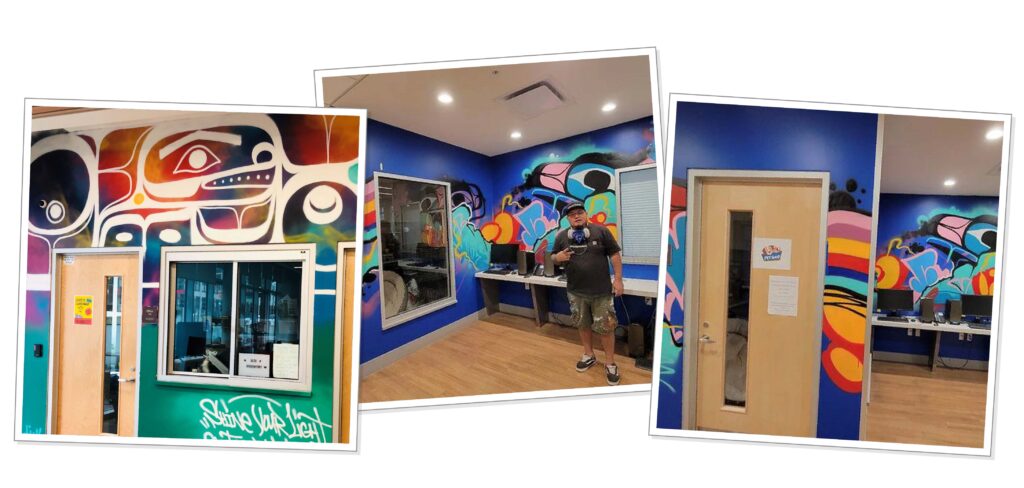On August 9th, the world comes together to celebrate International Day of the World’s Indigenous Peoples. This day holds profound significance as it highlights the unique cultures, traditions, and contributions of Indigenous communities, globally. International Day of the World’s Indigenous Peoples serves as a poignant reminder of the cultural richness and wisdom embedded within Indigenous communities. With their profound connection to nature and their ancestral heritage, Indigenous Peoples offer valuable lessons on sustainable living, conservation, and intergenerational knowledge transfer. Celebrating this day enables us to acknowledge their historical significance and promote the preservation of their cultural identity.
This day also sheds light on the persistent barriers that Indigenous Peoples face, from land rights and environmental challenges to social inequalities and poverty. As we commemorate this day, it is essential to recognize the importance of creating a more equitable and inclusive world, where the rights and dignity of Indigenous Peoples are respected and upheld.
Barriers Faced by Indigenous Communities Globally
Despite their invaluable contributions, Indigenous Peoples continue to face formidable barriers that hinder their progress and well-being:
- Land Rights and Environmental Challenges: Indigenous communities often struggle to protect their ancestral lands from exploitation, deforestation, and resource extraction. This threatens their traditional ways of life and puts their livelihoods at risk.
- Social Inequalities and Discrimination: Indigenous individuals face systemic discrimination and marginalization, which limit access to education, healthcare, and economic opportunities. Gender disparities within these communities further exacerbate the challenges faced by Indigenous women.
- Poverty and Lack of Access to Basic Services: Indigenous communities are disproportionately affected by poverty, with limited access to basic services such as clean water, sanitation, and healthcare.
- Cultural Erosion: Globalization and modernization often erode Indigenous cultures, languages, and traditions, which leads to the loss of valuable cultural heritage.
Startling data from the United Nations unveils a sobering truth: marginalization and other vulnerabilities contribute to the limited access of Indigenous Peoples to education, healthcare, and digital communications.
- Globally, 47% of all Indigenous Peoples in employment have no education, compared to 17% of their non-Indigenous counterparts. This gap is even wider for women.
- More than 86% of Indigenous Peoples globally work in the informal economy, compared to 66% for their non-Indigenous counterparts.
- Indigenous Peoples are nearly three times as likely to be living in extreme poverty compared to their non-Indigenous counterparts.
Across BC while only 6% of BC’s total population are Indigenous (according to the 2016 Census), about 40% of people experiencing homelessness self-identify as Indigenous. Indigenous individuals continue to experience homelessness at a massively disproportionate rate.
At Covenant House Vancouver, in 2022:
- 29% of the population we serve self-identify as being Indigenous
- 67 Indigenous youth were new to our programs and services
- 127 Indigenous youth accessed our Drop-In Centre and 179 Indigenous youth were supported by our Outreach teams
- 45 Indigenous youth stayed in our Crisis Program
Creating Equity and Inclusion
Building a more equitable and inclusive world requires collective efforts from governments, organizations, and individuals. Here are some steps we can take to support Indigenous communities:
- Acknowledge and Respect Land Rights: Uphold the rights of Indigenous Peoples to their ancestral lands and involve them in decision-making processes concerning resource management and conservation.
- Advocate for Policy Changes: Advocate for policies that protect the rights and promote the well-being of Indigenous communities. This includes addressing social inequalities, promoting inclusive education, and supporting economic development initiatives.
- Promote Cultural Preservation: Encourage initiatives that preserve and promote Indigenous cultures, languages, and traditional practices. This includes supporting cultural festivals, language programs, and art exhibitions.
- Empower Indigenous Voices: Amplify the voices of Indigenous leaders and advocates to ensure their concerns are heard and addressed at local, national, and international levels.
- Foster Collaboration and Understanding: Promote cross-cultural exchange and dialogue to foster mutual understanding and appreciation between Indigenous and non-Indigenous communities.
Nearly 1/3 of the youth population we serve is Indigenous and we have an obligation and responsibility to be able to provide holistic care, which may include spiritual and cultural supports. As an organization, we actively participate in educating ourselves, and ask ourselves, “How can we do better?” Where we aren’t experts in our services, we connect with local organizations and additional Indigenous and cultural supports for the Indigenous youth who come to Covenant House.
We’d like to highlight four organizations that we learn so much from, often work with, and connect our Indigenous youth to:
- Indian Residential Schools Survivors Society (IRSSS): irsss.ca/services
- Vancouver Aboriginal Friendship Centre Society (VAFCS): vafcs.org
- Kilela Lelum: kilalalelum.ca
- Urban Native Youth Association: unya.bc.ca
Please take some time to visit their websites and learn more about these organizations and the significant work that they do.
Indigenous Medicine Cabinets
Through our work with some of the above mentioned organizations and through the youth at CHV, we learned of Indigenous medicine cabinets. Indigenous medicine cabinets serve as repositories of traditional knowledge, healing practices, and remedies that have been passed down through generations. Indigenous medicine cabinets are not only physical containers but embodiments of Indigenous culture, and identity, and are a testament to the resilience and strength of Indigenous Peoples.
We commissioned two Indigenous medicine cabinets, housed in our Crisis Program, in our Wellness Room, with a third one underway for our Drop-In Centre programs. They are an important component to the care that we provide for this demographic. The medicine cabinets help Indigenous youth foster a connection to their culture and traditions and allows them to practice in a spiritual and ceremonial way that honours their culture, their heritage, and their ancestral traditions.

Sourcing the items for Indigenous youth is something that we do consciously and ethically. All our medicines are procured through Cedar Root Gallery, which is an Indigenous owned and operated store, found inside the Vancouver Aboriginal Friendship Centre.
Ravens Creation
Last year, we also had the pleasure and privilege to work with a former youth and incredibly talented artist KC Hall. We approached him with a request to create murals for our Drop-In Centre. KC gladly accepted the task and incorporated the Raven into his artwork, as it holds significant meaning for him. The Raven represents his family crest, and his grandmother being a hereditary chief of their nation added to its added to its importance. Additionally, the murals served as a heartfelt tribute to his beloved Aunt June.

The murals at the Drop-In Centre, not only bring warmth and comfort to the space, but the Raven story is very metaphoric for many youth who come to CHV. For many, it’s a new beginning—a transformative time where youth make discoveries and bring light into their lives, as they create hope-filled futures.
Click the clip below for some heartfelt advice from KC:
You can learn more about KC and this project, by reading the Raven Creation Story blog post.
